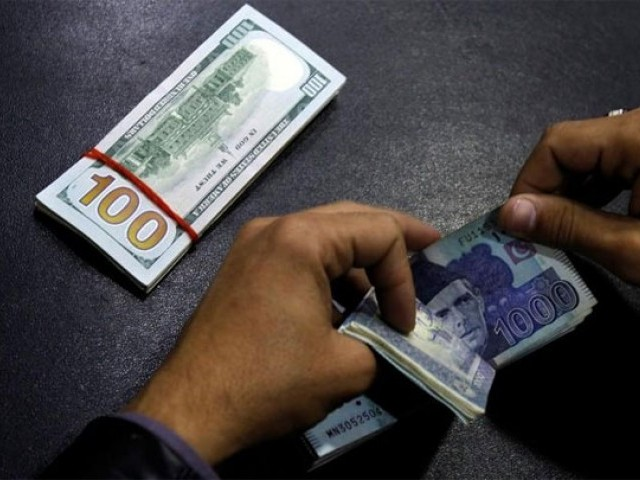Impact of rupee’s fall will be felt after a year: SBP official
Says exports, remittances will increase and imports, deficit will come down

The Rupee has weakened against the dollar. PHOTO:FILE
“Although positive results have started emerging due to the depreciation of the rupee, real positive consequences will be felt after around a year,” a representative of the State Bank of Pakistan (SBP) told the committee.
A meeting of the committee was held here and presided over by its Chairman Senator Farooq H Naek.
In historic drop, rupee weakens 7.54% against US dollar
The SBP official said the current sharp rupee depreciation injected a new life into Pakistan’s economy which was reflected in economic indicators for the first quarter of current fiscal year 2018-19. In the quarter, foreign remittances increased 13%, trade deficit narrowed 1.6% and current account deficit shrank 2.6%.
He, however, admitted that inflation had also increased due to the rupee’s fall, but said in order to control price hike, the SBP was tightening the monetary policy.
Until last year, he said, the average monthly current account deficit remained above $2 billion while in August this year it dropped to $600 million.
Senator Mohsin Aziz pointed out that over the past three to four years, the current account deficit had stood so high, but under whose orders, the rupee’s value was kept at the artificial level.
The SBP official responded that at that time the situation was not as grave as it was now. However, the committee did not seem to be satisfied with his reply.
Responding to another question, the SBP official said the monetary policy was being set by a 10-member committee and there was no government intervention in the policy decisions.
Turning to another issue, Senator Muhammad Ali Saif said while opening bank accounts and issuing credit cards, banks were discriminating against parliamentarians, advocates, politicians and journalists. Mussadik Malik endorsed his opinion, saying he was denied credit card by a bank despite having applied for the card five months ago.
The SBP representative emphasised that the bank should not reject the application of any customer for opening bank accounts, issuing credit cards or any other services without any legal reason which the bank officer concerned would have to give to the customer.
Saif revealed that banks demanded unnecessary documents from the politicians, parliamentarians and advocates while opening an account.
Naek remarked that opening a bank account was the right of everyone and said in the next meeting the SBP governor must be present to address the reservations of the lawmakers. Apart from him, the Pakistan Banking Association chairman and the banking ombudsman should also be present in the next meeting.
Rupee hits 10-week low against US dollar
“Currently, there are over 55 million bank accountholders across the country and if a banker refuses to open a bank account, there must be valid reasons,” the meeting was told.
The committee directed the SBP to remove the restrictions in order to avoid discrimination against any class or profession including journalists, advocates and politicians.
Published in The Express Tribune, October 24th, 2018.
Like Business on Facebook, follow @TribuneBiz on Twitter to stay informed and join in the conversation.



















COMMENTS
Comments are moderated and generally will be posted if they are on-topic and not abusive.
For more information, please see our Comments FAQ